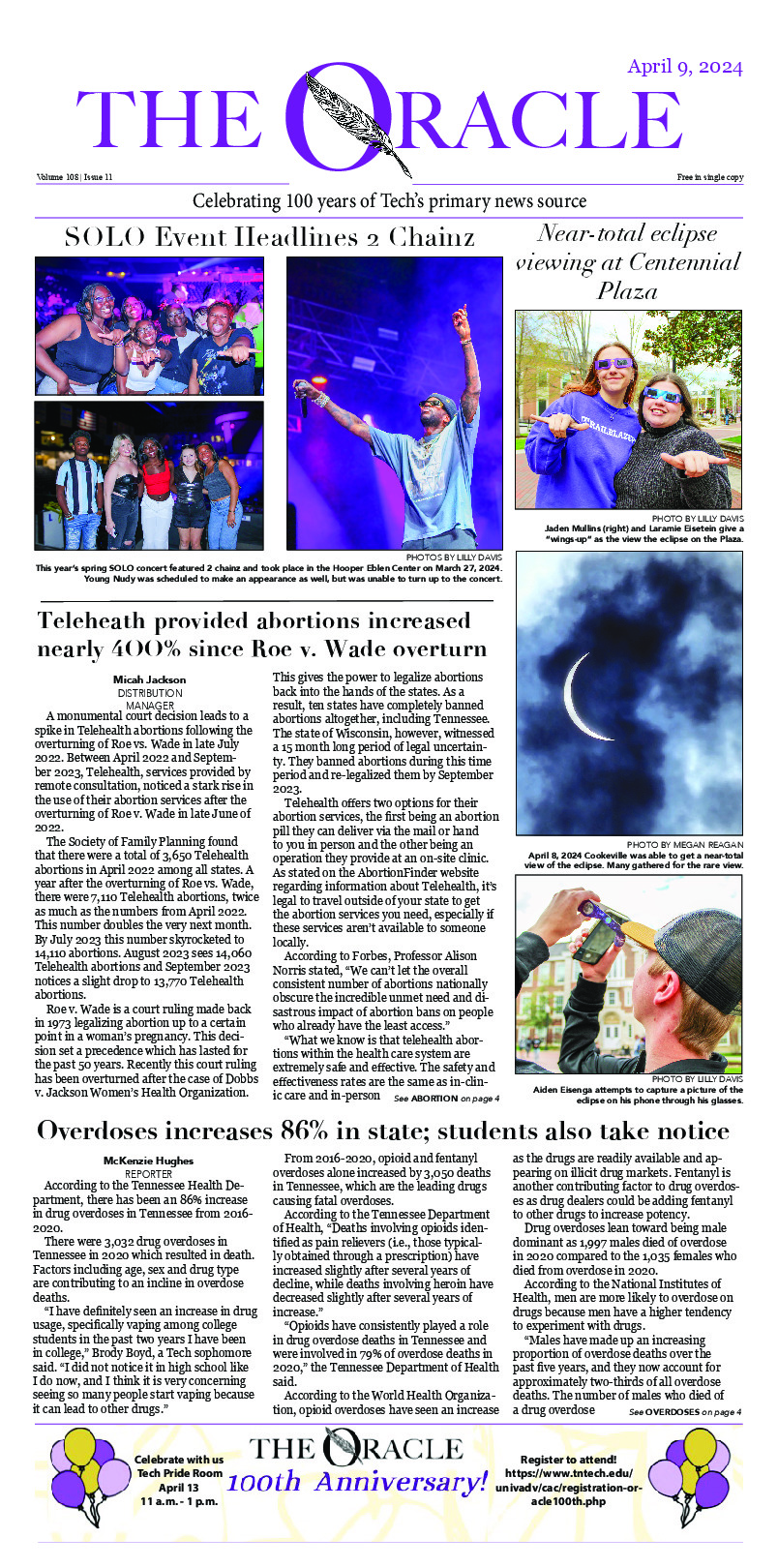Students may not realize $8 of their semester fees helps make Tech’s campus more environmentally friendly.
University officials implemented the fee in 2005 after the SGA approved a sustainability fee, DeLayne Miller, an alumna hired to oversee the Sustainable Campus Committee, said.
The fee funds recycling, composting and other “green” projects, Miller said.
“I think a lot of the students don’t realize that they’ve all put into this fund and paid for this,” Miller said.
Miller said the committee wants people on campus to reduce their ecological footprint by decreasing or eliminating activities that damage the environmental.
“The goal here with this office is that we show students that whatever they have chosen with their career path, in any field you can be more sustainable in what you do,” Miller said.
Miller said the committee wants to educate students about how their money is helping campus, because she believes they are unaware.
Baylee Rhea, a sophomore studying business, said she is unaware the fee she pays each semester helps fund projects to make Tech more sustainable.
“I think it is a good program to have as long as it’s making improvements on campus,” Rhea said.
The committee created an office two years ago in the facilities building. The fund also pays for student workers, Miller said.
Part of the fee funds the campus recycling program. The program currently employs six student workers who pick up the recycling materials such as aluminum cans and plastic soda bottles from receptacles placed in campus buildings, Miller said.
Lindsay Mills, a senior majoring in environmental and sustainability studies, works for the committee as an intern.
“We have to pay landfill cost, so we are offsetting those costs with how much we recycle,” Mills said.
The biggest problem associated with campus recycling is people placing incorrect materials in the bins, Miller said.
Mills said she is leading a joint project with the agriculture department, campus grounds, Tennessee Department of Environment and Conservation and state officials to expand composting on campus.
Currently, only yard waste is composted on campus, but committee members are looking to use food waste from dining services and expand the use of composting on the campus farm, Miller said.
In the past five years, Tech recycled about 1.1 tons of materials and sent nearly 7.8 tons to the landfill. An average of 12.6 percent of total waste is recycled annually, according to the Sustainable Campus Committee reports.
Miller said the fund also covers proposals the committee receives for various projects.
As a member of the American Association of Sustainability in higher education, the committee also is responsible for tracking data collected on campus sustainability, Mills said.
“We try to track data for the areas that are required by the AASHE STARS program. These include air, climate, buildings, energy, grounds, transportation, waste and water,” she said.
The committee tracks data greenhouse gas emissions, carbon footprints, fuel usage, and electricity usage. They also track savings relating to occupancy sensors, bike sharing, shuttle usage, recycling, compost and campus water usage, Mills said.
The sustainability fee also is being used to fund the Leadership in Energy and Environmental Design certification of the new science building under construction at the corner of Willow Avenue and 7th Street.
This project, which began in April, is expected to be the first certified building on campus when completed in 2019, Mills said.
The design calls for the building to be equipped with a regenerative media pool filtration system, instead of the typical sand filtration system, resulting in approximately 89 percent water and 21 percent electrical savings annually, according to information provided by the committee.
Project Regrind is another projected funded by the sustainability fee. The project washes and grinds plastic bottles to use a filament in 3D printing, Miller said.
A list of projects is located on the Office of Sustainability and Sustainable Campus Committee’s website.
The website also contains a proposal form for anyone interested and the committee’s event schedule.
Committee meetings are open to everyone. The next meeting is at 3:30 p.m. March 28 at the facilities building.


